Abstract
In this paper some of the general issues surrounding recently published guidelines for the practice of research ethics committees are outlined, concentrating in particular on the difficulties raised by research with psychiatric patients. Research is distinguished from ordinary clinical practice by the intention to advance knowledge. So defined, research with psychiatric patients should be governed by the same four principles as research with any other group--knowledge, necessity, benefit and consent. In applying these principles, however, particularly the principle of consent, many acute difficulties are raised by psychiatric patients. A number of proposals for addressing these difficulties are discussed. It is suggested that, notwithstanding the value of published guidelines, and the help that may be available from research ethics committees, the primary responsibility for maintaining high standards of practice in research rests with research workers themselves.
Full text
PDF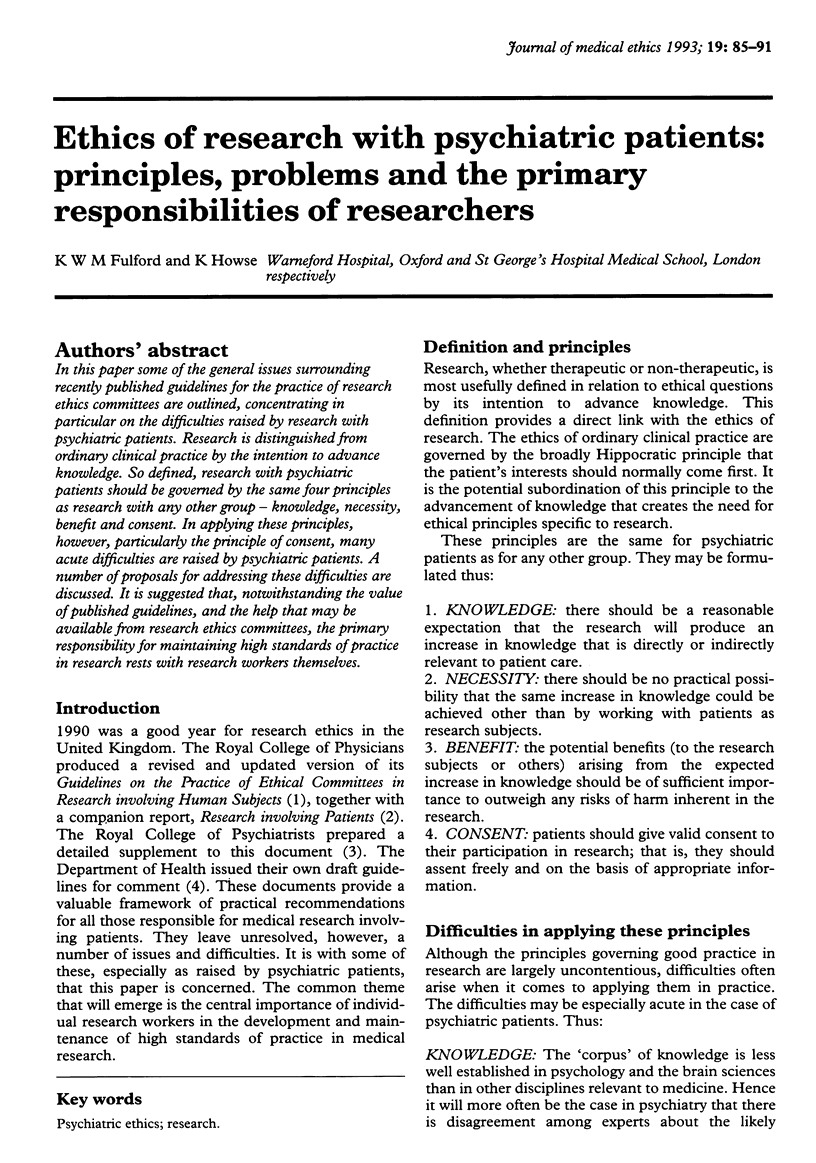
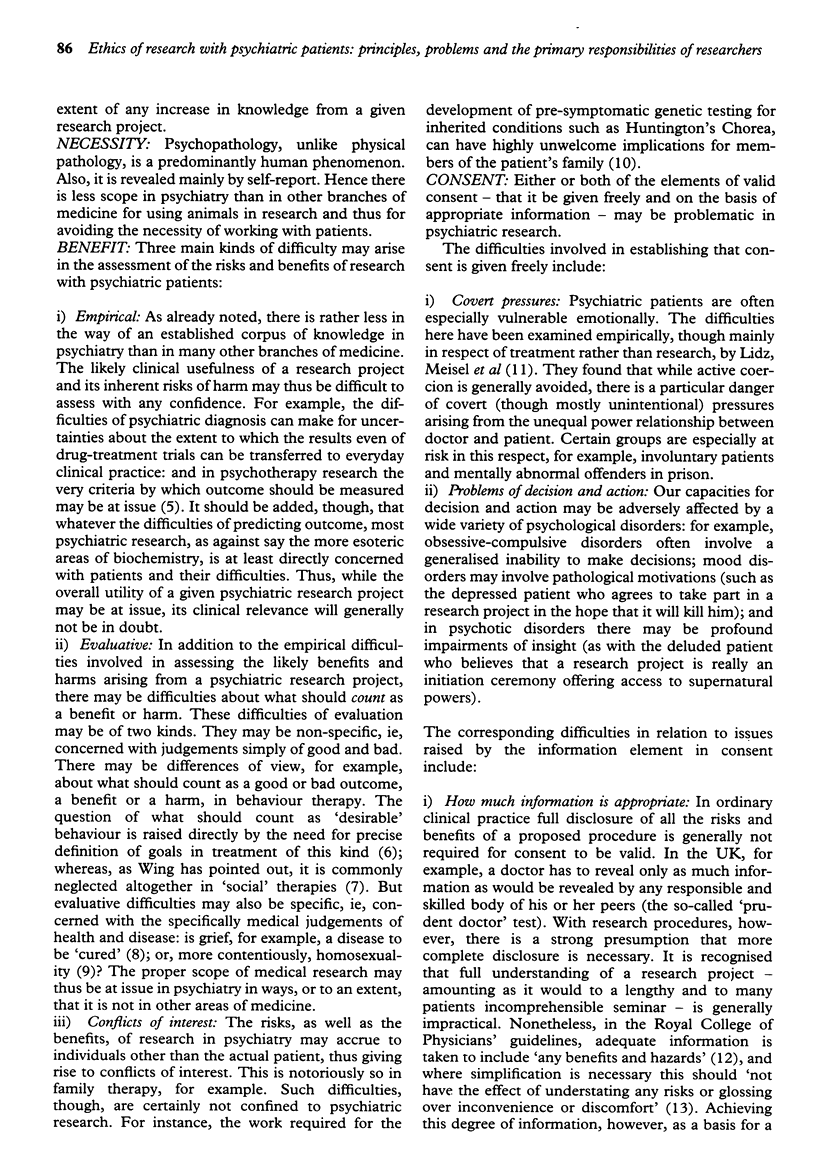
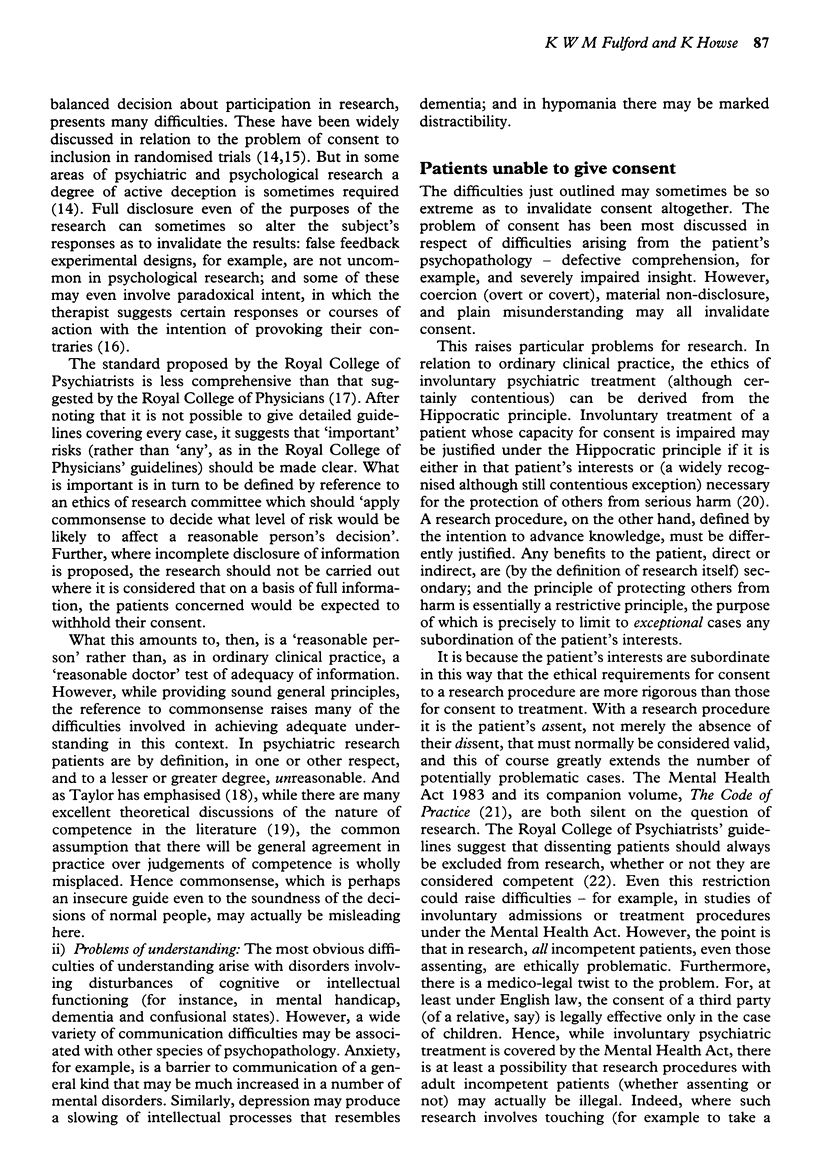
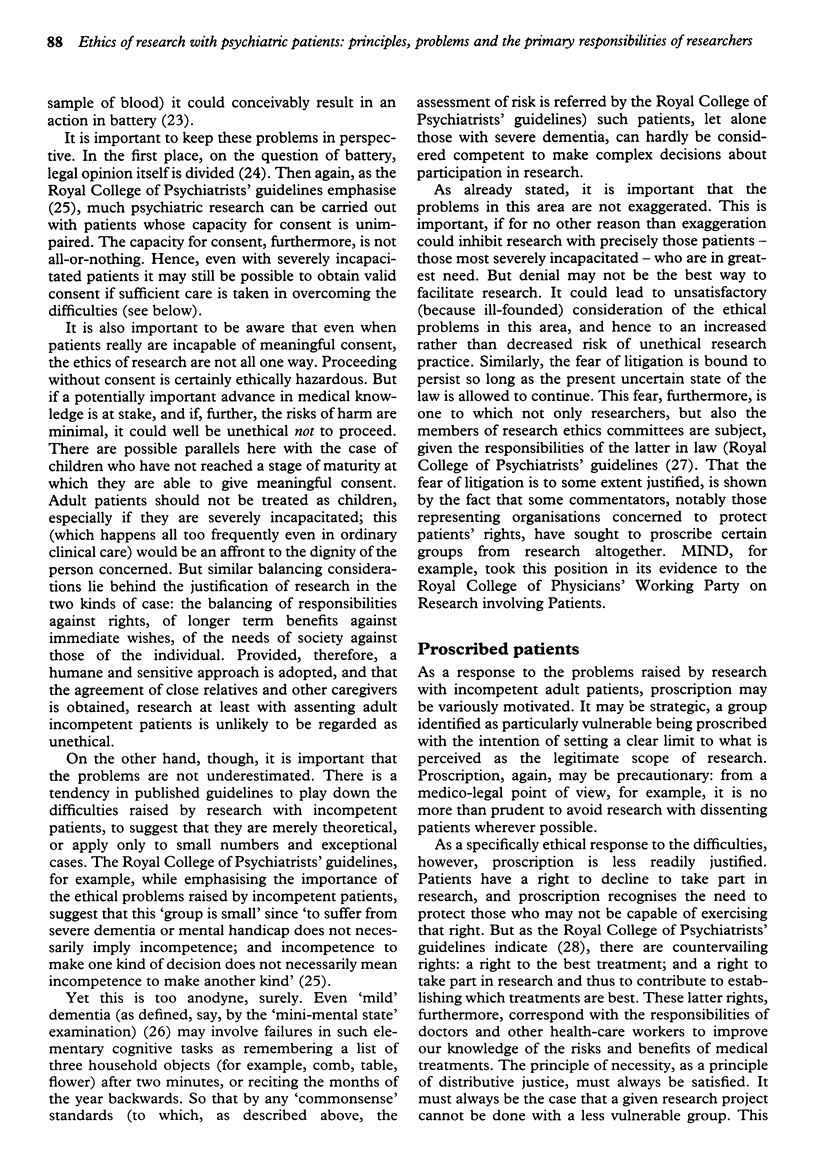
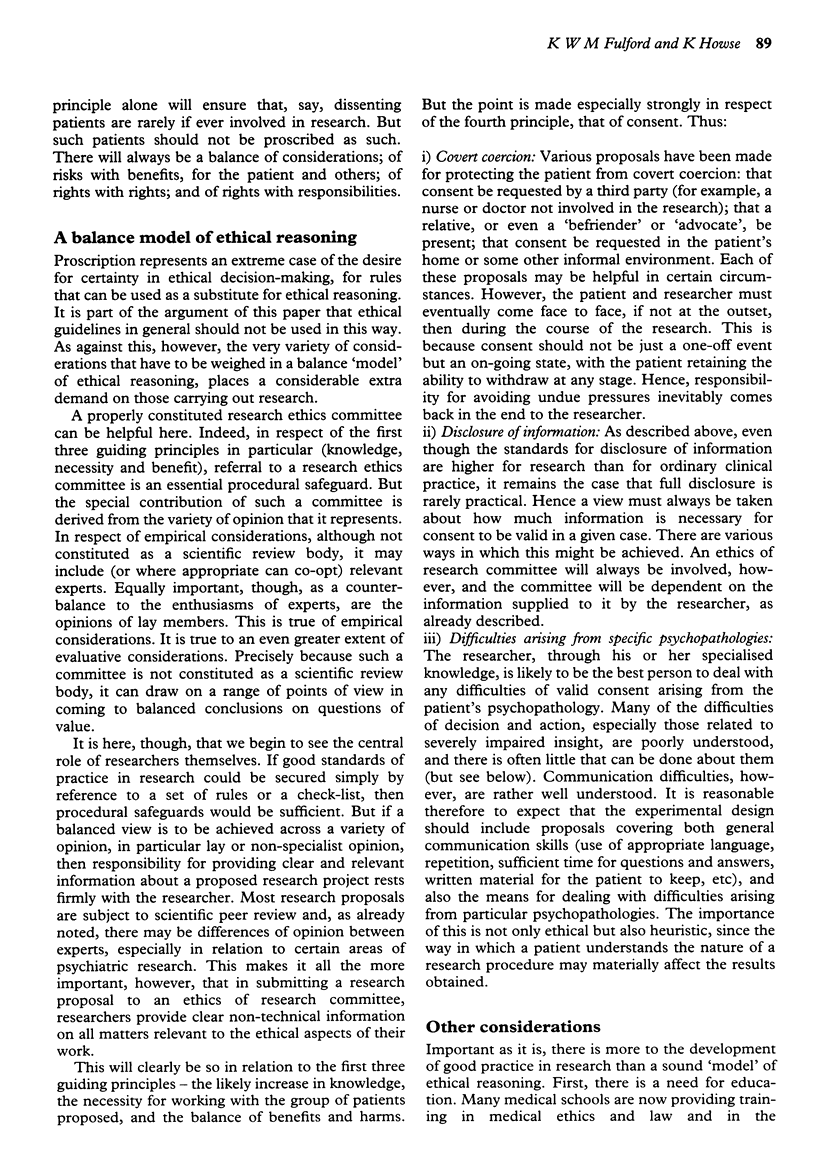
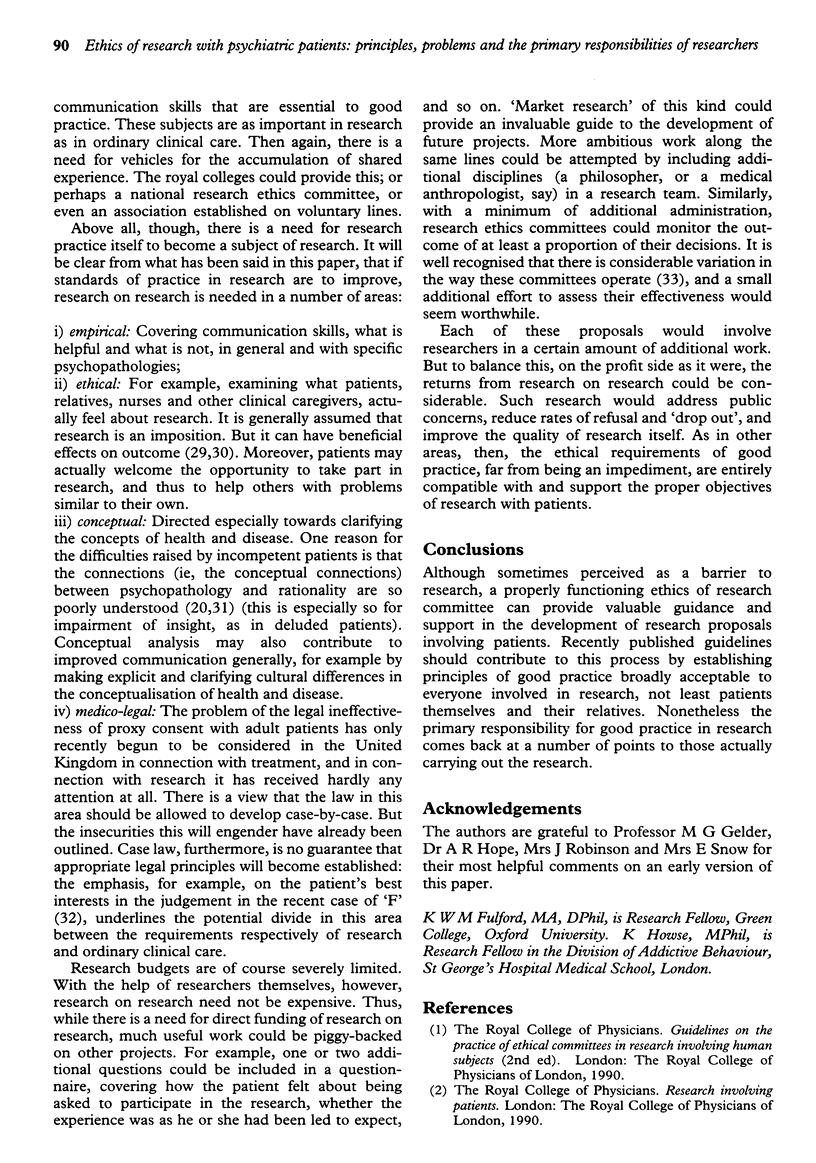
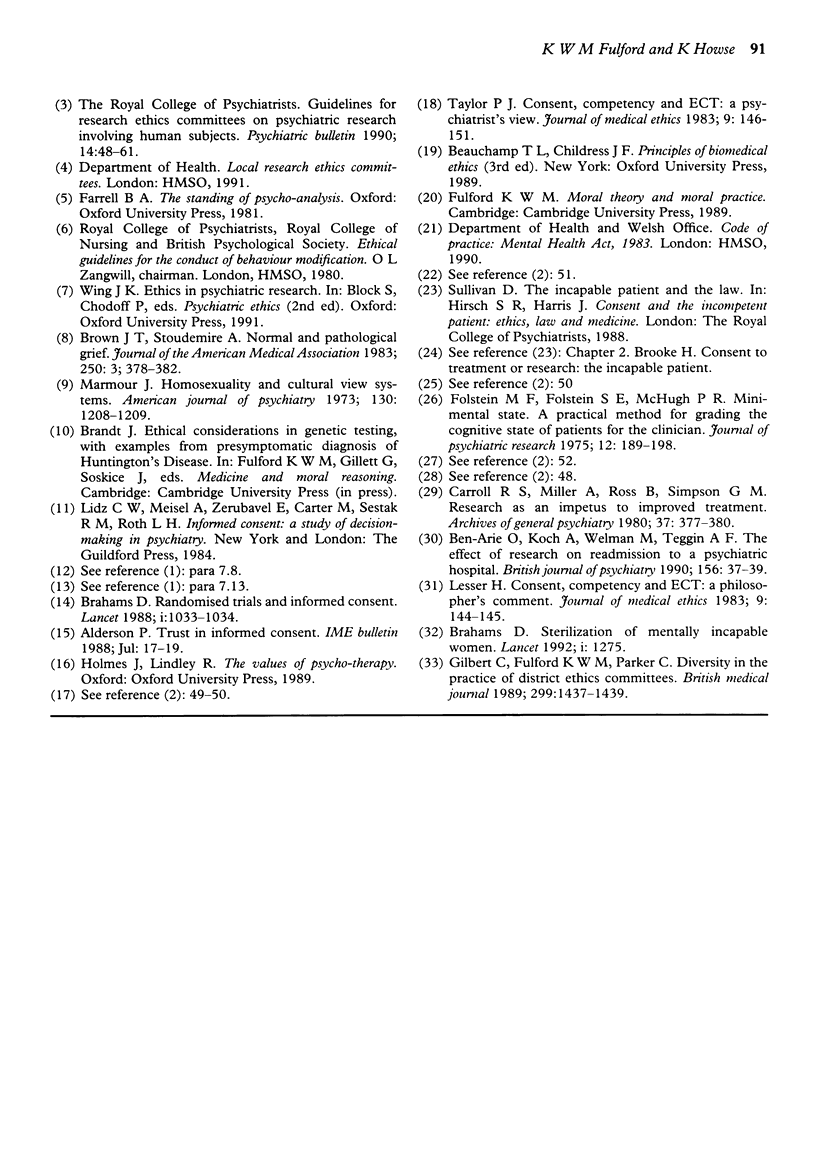
Selected References
These references are in PubMed. This may not be the complete list of references from this article.
- Ben-Arie O., Koch A., Welman M., Teggin A. F. The effect of research on readmission to a psychiatric hospital. Br J Psychiatry. 1990 Jan;156:37–39. doi: 10.1192/bjp.156.1.37. [DOI] [PubMed] [Google Scholar]
- Brahams D. Randomised trials and informed consent. Lancet. 1988 Oct 29;2(8618):1033–1034. doi: 10.1016/s0140-6736(88)90805-7. [DOI] [PubMed] [Google Scholar]
- Brahams D. Sterilisation of a mentally incapable woman. Lancet. 1989 Jun 3;1(8649):1275–1276. doi: 10.1016/s0140-6736(89)92376-3. [DOI] [PubMed] [Google Scholar]
- Brown J. T., Stoudemire G. A. Normal and pathological grief. JAMA. 1983 Jul 15;250(3):378–382. [PubMed] [Google Scholar]
- Carroll R. S., Miller A., Ross B., Simpson G. M. Research as an impetus to improved treatment. Arch Gen Psychiatry. 1980 Apr;37(4):377–380. doi: 10.1001/archpsyc.1980.01780170019001. [DOI] [PubMed] [Google Scholar]
- Folstein M. F., Folstein S. E., McHugh P. R. "Mini-mental state". A practical method for grading the cognitive state of patients for the clinician. J Psychiatr Res. 1975 Nov;12(3):189–198. doi: 10.1016/0022-3956(75)90026-6. [DOI] [PubMed] [Google Scholar]
- Gilbert C., Fulford K. W., Parker C. Diversity in the practice of district ethics committees. BMJ. 1989 Dec 9;299(6713):1437–1439. doi: 10.1136/bmj.299.6713.1437. [DOI] [PMC free article] [PubMed] [Google Scholar]
- Lesser H. Consent, competency and ECT: a philosopher's comment. J Med Ethics. 1983 Sep;9(3):144–145. doi: 10.1136/jme.9.3.144. [DOI] [PMC free article] [PubMed] [Google Scholar]
- Taylor P. J. Consent, competency and ECT: a psychiatrist's view. J Med Ethics. 1983 Sep;9(3):146–151. doi: 10.1136/jme.9.3.146. [DOI] [PMC free article] [PubMed] [Google Scholar]


